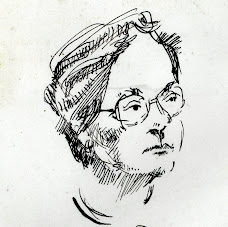Now I’ve finished watching Simon Schama’s BBC series, A History of Britain. The episodes on Disc 4 cover the years from William and Mary to the Regency, George IV and William IV. (The latter get short shrift.) In the earlier part of the century, the Jacobite rebellion which attempted to install Bonnie Prince Charlie as King in lieu of the Hanoverian George I is shown, with the conclusion that its failure may actually have ended up improving the lot of the Scots. The American and French Revolutions, and how Britain dealt with the former and avoided a replay of the latter figure largely in the history of the later part of the 18th century. Schama discusses William Wordsworth’s journey from radical to Romantic at some length, and of course, also deals with the Napoleonic Wars.
The final disc contains three episodes which take Schama’s history from Victoria through Winston Churchill. As in the preceding episodes, we see Schama’s belief that an excessive emphasis on trade and business compromised British ideals of liberty, particularly during the glory days of Empire. Heartrending photographs of Indians who starved to death as Victoria was being made Empress of India illustrate his point all too well. Oddly, he seems to skim over both the Boer War and World War I with very little discussion.
In some ways I felt that the final episode, The Two Winstons, was the best of all. One of the strengths of Schama’s work is its interdisciplinary focus, and in The Two Winstons he allows himself to emphasize that focus. The first Winston is, of course, Winston Churchill; the second is Winston Smith, the hero of George Orwell’s 1984, and by extension, Orwell (Eric Blair) himself. Comparing Churchill’s life and that of Blair/Orwell gives Schama an opportunity to tell the history of Britain in the first half of the 20th century in a fresh new way. (Churchill’s participation as first a cabinet member and then an officer in the trenches of France is pretty much the only mention of WWI). I also learned something that I don’t think I’d heard before – that when Churchill became Prime Minister in 1940, the members of the Cabinet were very close to trying to negotiate some kind of peace with Hitler – a terrifying thought. As usual with television histories of this type, my appetite for reading a bit more history has been whetted; I own at least the first volume of Schama’s companion history and will probably be dipping into it before long.

 Festen (The Celebration)
Festen (The Celebration)
